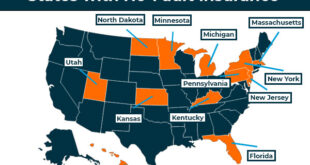Debt Consolidation Loan: Simplifying Finances Debt consolidation loans can be a game-changer for those juggling multiple debts with varying interest rates and payment schedules. By consolidating your debts into a single loan, you may save on interest, streamline payments, and work toward financial stability more effectively. This guide provides everything you need to know about debt consolidation loans, from how they work to expert tips for maximizing benefits.
How Does a Debt Consolidation Loan Work?
A debt consolidation loan merges multiple debts, such as credit cards, personal loans, or medical bills, into one manageable loan. With a single monthly payment, fixed interest rate, and repayment term, this loan can make debt management simpler. The primary goal is to lower the overall interest rate and reduce the complexity of keeping up with several payments.
Key Benefits of a Debt Consolidation Loan
- Simplified Payments: One payment means less chance of missing due dates and accumulating late fees.
- Lower Interest Rates: Often, debt consolidation loans have lower interest rates than credit cards or other types of debt.
- Boost to Credit Score: Timely payments on a consolidation loan may improve your credit score over time.
- Predictable Payment Schedule: With a fixed rate and monthly payment, budgeting becomes easier.
Steps to Get a Debt Consolidation Loan
- Evaluate Your Debts: List all outstanding debts, interest rates, and total balances.
- Check Your Credit Score: A better score often means more favorable loan terms.
- Research Lenders: Compare lenders to find the best interest rate and loan conditions.
- Apply for the Loan: Submit your application, including necessary documents like proof of income.
- Repay Existing Debts: Use the loan funds to pay off your debts entirely.
- Stick to a Budget: Plan your budget around your new single payment to stay on track.
Top Tips for Using a Debt Consolidation Loan
- Only Borrow What You Need: Don’t take out a larger loan than required to consolidate debts.
- Focus on Interest Rates: Compare rates to ensure your new loan costs less than your current debts.
- Choose a Shorter Loan Term: While monthly payments may be higher, you’ll save more in interest.
- Avoid New Debt: Refrain from using credit cards excessively after consolidating debt.
- Consider Balance Transfers: For smaller debts, a 0% interest balance transfer credit card may be an alternative.
- Automate Payments: Automating payments ensures you never miss one.
- Read the Fine Print: Watch out for hidden fees like origination fees or prepayment penalties.
- Build an Emergency Fund: Avoid new debt by saving for unexpected expenses.
- Seek Professional Advice: Consult a financial advisor if you’re unsure about loan terms or consolidation options.
- Monitor Your Credit: Use tools to track your credit score as you repay your loan.
FAQs About Debt Consolidation Loans
- What is a debt consolidation loan?
A debt consolidation loan combines multiple debts into a single loan with a fixed interest rate and monthly payment. - Will a debt consolidation loan affect my credit score?
Initially, it may decrease due to a hard inquiry, but timely payments can improve your score over time. - What types of debt can be consolidated?
Common types include credit card debt, medical bills, and personal loans. - Are debt consolidation loans secured or unsecured?
They can be either, depending on the lender. Secured loans may require collateral, like a home. - How long does it take to get approved?
Approval times vary but usually range from a few days to a few weeks, depending on the lender. - What if I miss a payment?
Missing a payment could incur late fees and negatively affect your credit score. - Are there fees associated with debt consolidation loans?
Some lenders charge origination or processing fees. Always ask about fees before committing. - Can I consolidate student loans?
Federal and private student loans require different consolidation strategies, typically through specific lenders. - Will I save money with debt consolidation?
This depends on your interest rate and loan terms, but many people save through lower rates. - Is debt consolidation the same as debt settlement?
No, consolidation combines debt, while settlement negotiates to reduce the amount owed.
Conclusion
Debt consolidation loans offer a strategic way to manage multiple debts, reduce interest costs, and simplify payments. By consolidating debts under a single loan, borrowers can focus on a single monthly payment at a potentially lower rate, which can provide substantial savings and reduce financial stress. However, successful debt consolidation requires careful planning, responsible borrowing, and a commitment to avoiding new debt.
Taking these steps and following the tips outlined above can help you make the most of a debt consolidation loan, allowing you to achieve financial stability more quickly and efficiently.
 Gerbang Finance
Gerbang Finance

